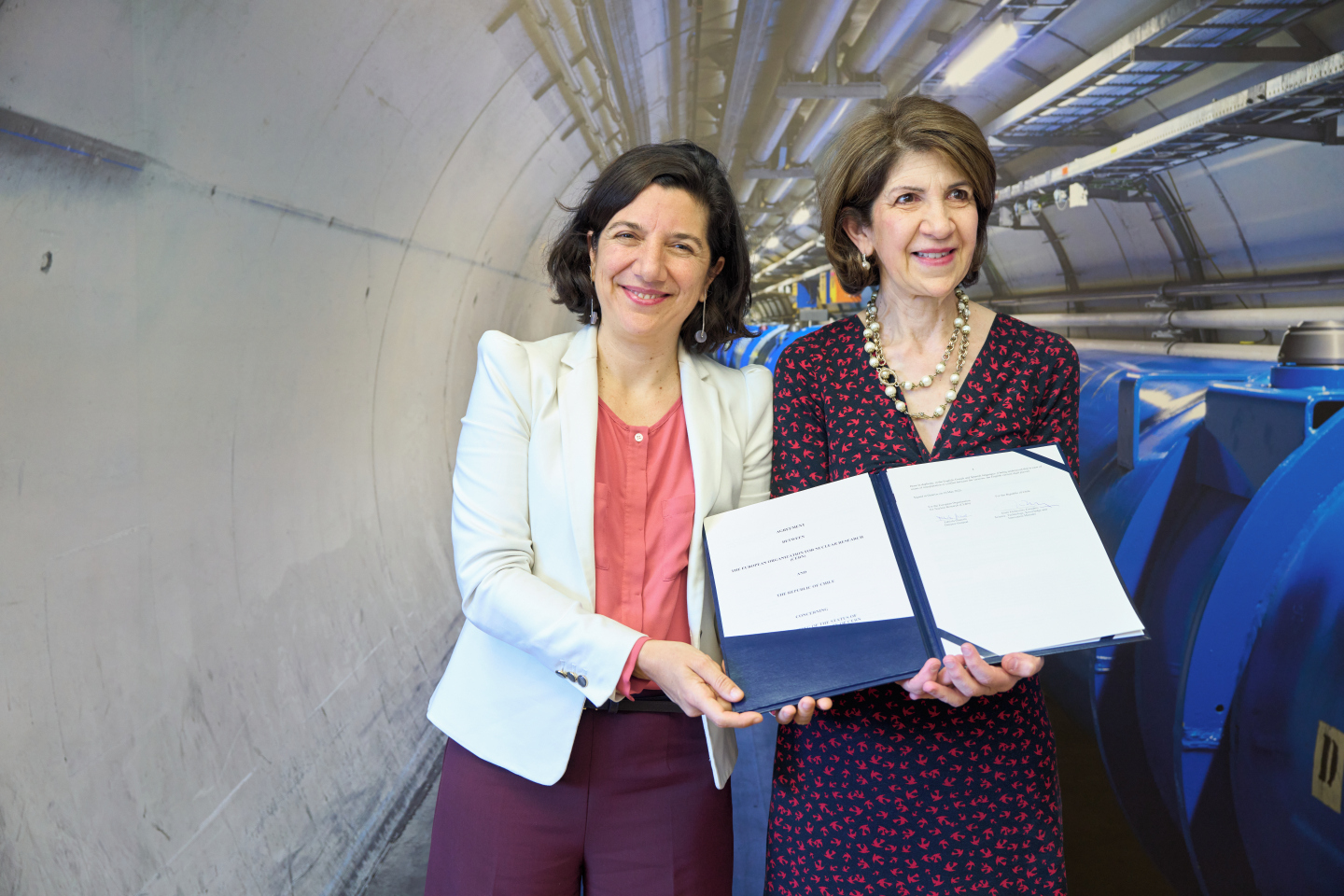Today, CERN Director-General Fabiola Gianotti and the Minister of Science, Technology, Knowledge and Innovation of Chile, Aisén Etcheverry, signed an agreement admitting Chile as an Associate Member State of CERN. The Associate Membership will enter into force once CERN has been informed that Chile has completed all the necessary accession and ratification processes.
“It is a great pleasure to welcome Chile as an Associate Member State of CERN. Chile has strong traditions in experimental and theoretical physics and engineering, and its involvement in CERN’s experimental programmes has grown and expanded significantly over the years. This new status marks an exciting step forward, offering opportunities to broaden scientific cooperation, foster technological innovation, and support education and training,” said Fabiola Gianotti, CERN Director-General.
“This is a historic moment for Chilean science and technology, initiated in 2007, when President Michelle Bachelet visited Switzerland and an agreement was signed between CERN and CONICYT regarding the participation of Chilean institutions in high-energy physics experiments at CERN. After a visit to CERN in 2023, President Gabriel Boric had the vision to take our country’s relations with CERN to the next level and asked us at the Ministry of Science, Technology, Knowledge and Innovation to proceed promptly with an application for Chile to become an Associate Member State. The conclusion of this agreement with CERN today is an indication of the maturity and technical quality of our high-tech industry, which was evaluated by a task force that travelled to Chile specifically for this purpose and is founded upon scientific excellence. Chilean scientists are already participating in CERN experiments through the SAPHIR Millennium Institute and the Valparaíso Scientific and Technological Centre,” said Aisén Etcheverry, Chile’s Minister of Science, Technology, Knowledge and Innovation.
Official cooperation between CERN and Chile began in 1991 with the signing of an international cooperation agreement with the National Commission for Scientific and Technological Research (CONICYT). Since 2007, CERN and Chile have continued to strengthen this collaboration, culminating in Chile’s formal application for Associate Membership of CERN in 2023. This status was granted by the CERN Council on 28 March 2025.
With the support of the National Agency for Research and Development (ANID), today Chilean universities and research institutions are participating in the LHC experiments ATLAS, CMS and LHCb, and in the SND@LHC, NA64 and SHiP collaborations. They are also conducting experiments at the ISOLDE facility and participating in studies for future facilities at CERN.
As an Associate Member State, Chile will be entitled to appoint representatives to attend meetings of the CERN Council, of the Finance Committee and of the Scientific Policy Committee in accordance with their respective Rules of Procedure and Terms of Reference. Chilean nationals will be eligible to apply for limited-duration staff positions and CERN’s graduate programmes and Chilean companies will be able to bid for CERN contracts.

